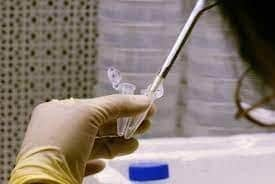Hepatitis outbreak: Number of cases of UK children being investigated rises to 108
The UK Health Security Agency (UKHSA) said it, Public Health Scotland, Public Health Wales and the Northern Ireland Public Health Agency were continuing to investigate the rise in cases of sudden onset hepatitis, liver inflammation, in children since January.
It said on Thursday a further 34 cases had been identified, bringing the total across the UK to 108, with eight children having received a liver transplant.
Advertisement
Hide AdAdvertisement
Hide AdOf the total confirmed cases, 79 are in England, 14 in Scotland and the rest in Wales and Northern Ireland, the UKHSA added. At least one Scottish child has undergone emergency transplant surgery.


Most of the children were aged three; seven were girls and six were boys. Most of the children had jaundice, abdominal pain, nausea and tiredness before being admitted.
All of the children admitted were in hospital for at least six days. Five are still in-patients, while one has undergone a liver transplant. None of the children had any significant history of illness and all were described as generally healthy before contracting the disease.
The agency also said it is investigating the possible causes behind the spike in cases but there was no link to the Covid-19 vaccine as none of the children had received a jab.
It added that the investigation, including information from patient samples and surveillance systems, continued to point towards a link to a group of viruses called adenoviruses, with 77% of cases testing positive for adenovirus.
But the agency added it was “not usual to see this pattern of disease” from adenovirus, and it was also looking into other possible factors, such as another infection like Covid-19 or an environmental cause.
The UKHSA said it was also investigating whether there had been a change in the genome of the adenovirus.
Dr Meera Chand, director of clinical and emerging infections at UKHSA, said: “We are working with the NHS and public health colleagues in Scotland, Wales and Northern Ireland to swiftly investigate a wide range of possible factors which may be causing children to be admitted to hospital with liver inflammation known as hepatitis.
Advertisement
Hide AdAdvertisement
Hide Ad“Information gathered through our investigations increasingly suggests that this is linked to adenovirus infection. However, we are thoroughly investigating other potential causes.”
The UKHSA said that adenoviruses are a family of common viruses that usually cause a range of mild illnesses – including colds, vomiting and diarrhoea – and most people recover without complications.
While they do not typically cause hepatitis, it is a known rare complication of the virus.
Adenoviruses are commonly passed from person to person and by touching contaminated surfaces, as well as through the “respiratory route”, the agency said.
It added that the most effective way to minimise the spread is to practise good hand and respiratory hygiene and supervise thorough handwashing in younger children.
Dr Chand urged parents to be alert to the signs of the illness, and added: “Normal hygiene measures such as thorough handwashing – including supervising children – and good thorough respiratory hygiene, help to reduce the spread of many common infections, including adenovirus.
“We are also calling on parents and guardians, to be alert to the signs of hepatitis.”
Comments
Want to join the conversation? Please or to comment on this article.